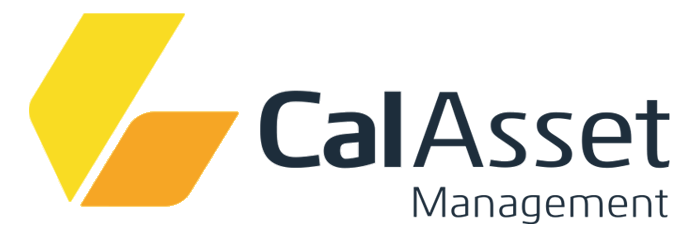In this week's edition:
· US Stocks Closed Higher Last Week, Boosted by President Trump’s Reassuring Comments That Eased Concerns Over Escalating Trade Tensions with China
· Gold Posted Its Strongest Week in Five Years, Rising by 5.82% as Investors Sought Safety Amid Heightened Economic Uncertainties
· Ghana’s Treasury Auction Undersubscribed by 56.07% as Yields Rise Across the Curve
· Ghana Stock Market Extends Winning Streak for Sixth Straight Week as GSE-CI Inches Up 0.08% w/w, YTD Return Hits 73.79%
- Kindly click to view the full report: Global Market Update - October 20, 2025
AROUND THE GLOBE
· China Q3 GDP Growth Weakest in a Year
o China’s economy grew by 4.8% year-on-year in Q3 2025, easing from 5.2% in Q2 2025 and matching forecasts, marking the slowest pace since Q3 2024. Growth momentum weakened amid U.S. trade tensions, a prolonged property downturn, and subdued consumer demand. Industrial output accelerated, while retail sales rose at their slowest in a year. Authorities noted lingering external risks but said year-to-date growth of 5.2% keeps the full-year target within reach.
· Euro Area Inflation Inches Above ECB Target
o Eurozone inflation was confirmed at 2.2% year-on-year in September 2025, rising slightly above the ECB’s 2.0% target after holding steady for three months. Services inflation picked up to 3.2%, while energy costs fell marginally by 0.4%. Food inflation eased to 3.0%, and non-energy industrial goods stayed flat at 0.8%. Core inflation rose to 2.4%, signaling persistent underlying price pressures despite earlier moderation.
· China Holds LPR Rates Steady for Fifth Straight Month
o The People’s Bank of China kept its one-year Loan Prime Rate at 3.0% and the five-year rate at 3.5% in October 2025, both unchanged for a fifth month and in line with expectations. The move followed the Federal Reserve’s shift to easing and ongoing Sino-US trade tensions. Policymakers maintained record-low borrowing costs to support growth, with new Yuan loans more than doubling in September on seasonal demand and policy support.
· UK Economy Returns to Modest Growth in August
o The UK economy expanded by 0.1% month-on-month in August 2025, rebounding from a 0.1% contraction in July and matching expectations. Industrial output rose by 0.4%, led by a 0.7% gain in manufacturing, while mining and quarrying fell by 2.3%. The services sector stagnated for a second month, as strength in administrative and health services was offset by declines in retail, transport, and recreation. Construction output slipped by 0.3% amid weaker maintenance activity.
· Eurozone Current Account Surplus Narrows in August
o The Eurozone’s current account surplus shrank to EUR 13 billion in August 2025 from EUR 25.3 billion a year earlier, driven by a smaller goods surplus (EUR 8 billion vs. 17.1 billion) and a reduced primary income surplus (EUR 2 billion vs. 5 billion). The secondary income deficit widened to EUR 15 billion, while the services surplus rose slightly to EUR 18 billion. Seasonally adjusted, the surplus dropped to EUR 11.9 billion from EUR 29.8 billion in July.
- GHANA
· IMF Board to Consider Ghana’s 5th Programme Review in December
o The IMF Executive Board will meet in early December to consider Ghana’s fifth programme review, paving the way for a $380 million disbursement. The approval, once confirmed, will bring total disbursements to over $2.8 billion under Ghana’s $3 billion Extended Credit Facility. The funds will support ongoing reforms aimed at fiscal consolidation, debt sustainability, and economic recovery.
· Ghana’s Growth Slows to 4.5% in July, Says GSS
o Ghana’s economy expanded by 4.5% year-on-year in July 2025, according to the Monthly Indicator of Economic Growth (MIEG), a newly introduced high-frequency indicator from the Ghana Statistical Service. That marks a significant drop from the 8.3% growth recorded in July 2024. The slower pace was driven by an industrial sector that barely grew (+0.1%), while agriculture rebounded at 8% and services grew at 6.4%.
- AFRICA
· S&P Upgrades Egypt’s Rating to ‘B’; Fitch Maintains Outlook
o S&P Global raised Egypt’s sovereign credit rating to ‘B’, citing sustained reform momentum and a sharp recovery in GDP growth. The move marks S&P’s first upgrade since Egypt began receiving international financial support in March 2024. Meanwhile, Fitch affirmed its ‘B’ rating, underscoring Egypt’s robust growth prospects and strong backing from global and Gulf partners. Both agencies kept a ‘stable’ outlook, while Moody’s maintained its ‘Caa1’ rating with a positive outlook.
· Nigeria Inflation Rate Lowest Since May 2022
o Nigeria’s annual inflation rate eased to 18.02% in September 2025, its lowest level since May 2022, marking the sixth consecutive monthly decline. The moderation was driven by higher crude production, stable Naira, and lower food prices during harvest season, alongside favourable base effects. Food inflation fell sharply to 16.87% from 21.87%, while core inflation eased to 19.53% from 20.3% in July.
· South Africa Retail Sales Growth Slows Sharply in August
o South Africa’s retail sales growth decelerated to 2.3% year-on-year in August 2025, sharply down from an upwardly revised 5.7% in July. The slowdown was broad-based, with notable declines across general dealers, clothing and footwear, household goods, and hardware segments. Sales of food, beverages and tobacco fell by 3.7%, while pharmaceutical and medical goods rebounded by 4.1%. On a seasonally adjusted monthly basis, retail trade contracted by 1.2% following a 2.3% growth in July.
Sources: Bloomberg, Reuters, Trading Economics
